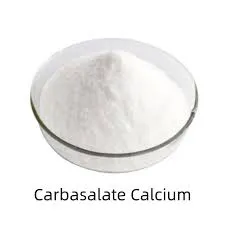- Afrikaans
- Albanian
- Amharic
- Arabic
- Armenian
- Azerbaijani
- Basque
- Belarusian
- Bengali
- Bosnian
- Bulgarian
- Catalan
- Cebuano
- Corsican
- Croatian
- Czech
- Danish
- Dutch
- English
- Esperanto
- Estonian
- Finnish
- French
- Frisian
- Galician
- Georgian
- German
- Greek
- Gujarati
- Haitian Creole
- hausa
- hawaiian
- Hebrew
- Hindi
- Miao
- Hungarian
- Icelandic
- igbo
- Indonesian
- irish
- Italian
- Japanese
- Javanese
- Kannada
- kazakh
- Khmer
- Rwandese
- Korean
- Kurdish
- Kyrgyz
- Lao
- Latin
- Latvian
- Lithuanian
- Luxembourgish
- Macedonian
- Malgashi
- Malay
- Malayalam
- Maltese
- Maori
- Marathi
- Mongolian
- Myanmar
- Nepali
- Norwegian
- Norwegian
- Occitan
- Pashto
- Persian
- Polish
- Portuguese
- Punjabi
- Romanian
- Russian
- Samoan
- Scottish Gaelic
- Serbian
- Sesotho
- Shona
- Sindhi
- Sinhala
- Slovak
- Slovenian
- Somali
- Spanish
- Sundanese
- Swahili
- Swedish
- Tagalog
- Tajik
- Tamil
- Tatar
- Telugu
- Thai
- Turkish
- Turkmen
- Ukrainian
- Urdu
- Uighur
- Uzbek
- Vietnamese
- Welsh
- Bantu
- Yiddish
- Yoruba
- Zulu
ਨਵੰ. . 09, 2024 06:11 Back to list
Ivermectin Injection for Managing Mites in Goats and Their Health Benefits
Ivermectin Injectable for Goat Mites A Comprehensive Overview
Ivermectin has gained considerable attention in veterinary medicine, particularly in the management of parasitic infestations in livestock. One of the areas where it is commonly utilized is in the treatment of mites affecting goats. This article aims to provide a detailed overview of ivermectin injectable solutions for goat mites, addressing its effectiveness, application methods, and safety considerations.
Understanding Goat Mites
Goat mites, primarily the Sarcoptes scabiei and Psoroptes ovis species, can lead to significant health issues in affected animals. These ectoparasites burrow into the skin, causing intense itching, inflammation, and secondary infections. Infestations can result in decreased weight gain, reduced milk production, and, in severe cases, death. Effective management of these mites is crucial for maintaining the health and productivity of goats.
Ivermectin Mechanism of Action
Ivermectin is an antiparasitic agent that belongs to the macrocyclic lactone class. It works by binding to specific chloride channels in the nervous system and muscle cells of parasites, leading to paralysis and death. This mode of action makes it effective against a wide range of ectoparasites, including various species of mites that infest goats.
Application of Ivermectin Injectable
ivermectin injectable for goat mites

Ivermectin is available in various formulations, including oral and injectable forms. The injectable form is particularly advantageous for treating widespread infections or in cases where goats may refuse oral medication. The standard dosage for goats is typically 0.2 mg/kg body weight, administered subcutaneously or intramuscularly. It’s crucial to ensure accurate dosing, as overdosing can lead to toxicity, while underdosing may result in inadequate treatment.
Before administering ivermectin, it is advisable to perform a thorough examination of the goat to confirm the presence of mites and to rule out other skin conditions. Moreover, farmers should monitor animals for any adverse reactions post-treatment, such as lethargy or allergic responses.
Safety and Precautions
While ivermectin is generally safe for use in goats, there are important precautions to consider. It should not be used in goats that are pregnant or nursing unless explicitly directed by a veterinarian, as it could potentially harm the offspring. Additionally, ivermectin should not be administered to certain breeds that may be sensitive to the drug, such as Collies and other herding breeds, due to genetic factors affecting drug metabolism.
Farmers and livestock owners should also be aware of the withdrawal times for ivermectin prior to slaughter. Typically, the withdrawal period is about 28 days, meaning that goats should not be slaughtered for meat within this time frame after treatment. This is crucial for ensuring food safety and compliance with regulations regarding veterinary drug residues in meat products.
Conclusion
Ivermectin injectable is a powerful tool in the battle against goat mites. Its effectiveness and ease of administration make it a preferred option among veterinarians and goat farmers alike. However, responsible use is imperative. Proper diagnosis, accurate dosing, and adherence to safety guidelines will ensure that goats recover quickly and without adverse effects from this common parasite. As the landscape of veterinary medicine continues to evolve, the use of ivermectin remains a cornerstone in the health management of goats, ensuring they thrive in a healthy environment.
-
Guide to Oxytetracycline Injection
NewsMar.27,2025
-
Guide to Colistin Sulphate
NewsMar.27,2025
-
Gentamicin Sulfate: Uses, Price, And Key Information
NewsMar.27,2025
-
Enrofloxacin Injection: Uses, Price, And Supplier Information
NewsMar.27,2025
-
Dexamethasone Sodium Phosphate Injection: Uses, Price, And Key Information
NewsMar.27,2025
-
Albendazole Tablet: Uses, Dosage, Cost, And Key Information
NewsMar.27,2025













